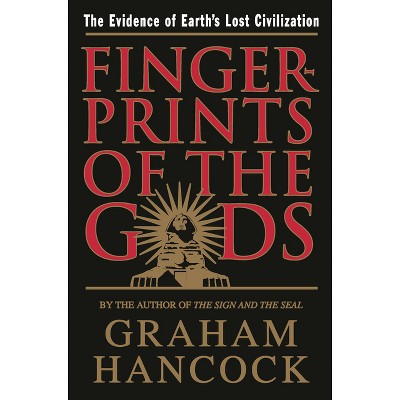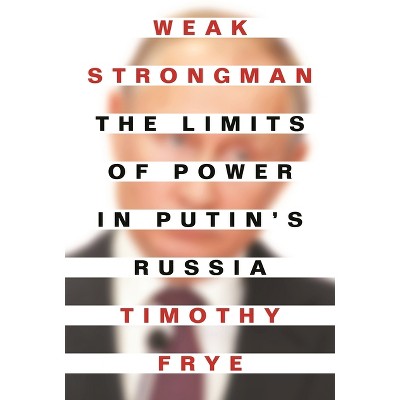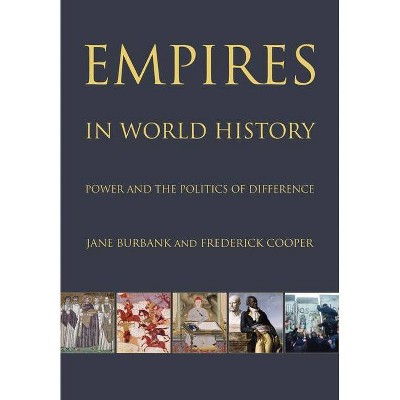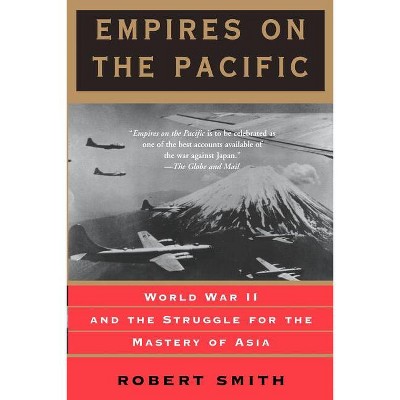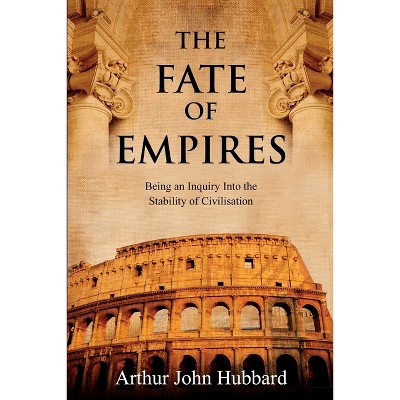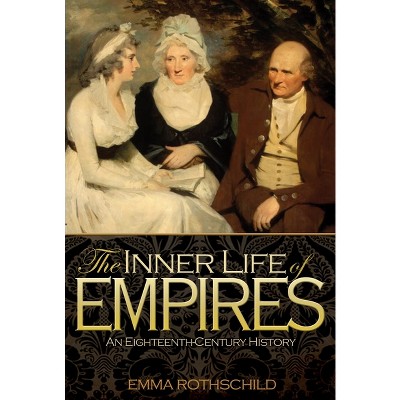Sponsored

Empires of the Weak - by J C Sharman (Paperback)
$12.39Save $8.56 (41% off)
In Stock
Eligible for registries and wish lists
Sponsored
About this item
Highlights
- How the rise of the West was a temporary exception to the predominant world order What accounts for the rise of the state, the creation of the first global system, and the dominance of the West?
- About the Author: J. C. Sharman is the Sir Patrick Sheehy Professor of International Relations at the University of Cambridge, where he is a fellow of King's College.
- 216 Pages
- History, World
Description
About the Book
What accounts for the rise of the state, the creation of the first global system, and the dominance of the West? The conventional answer asserts that superior technology, tactics, and institutions forged by Darwinian military competition gave Europeans a decisive advantage in war over other civilizations from 1500 onward. In contrast, Empires of the Weak argues that Europeans actually had no general military superiority in the early modern era. J. C. Sharman shows instead that European expansion from the late fifteenth to the late eighteenth centuries is better explained by deference to strong Asian and African polities, disease in the Americas, and maritime supremacy earned by default because local land-oriented polities were largely indifferent to war and trade at sea. Europeans were overawed by the mighty Eastern empires of the day, which pioneered key military innovations and were the greatest early modern conquerors. Against the view that the Europeans won for all time, Sharman contends that the imperialism of the late nineteenth and early twentieth centuries was a relatively transient and anomalous development in world politics that concluded with Western losses in various insurgencies. If the twenty-first century is to be dominated by non-Western powers like China, this represents a return to the norm for the modern era. Bringing a revisionist perspective to the idea that Europe ruled the world due to military dominance, Empires of the Weak demonstrates that the rise of the West was an exception in the prevailing world order.Book Synopsis
How the rise of the West was a temporary exception to the predominant world order
What accounts for the rise of the state, the creation of the first global system, and the dominance of the West? The conventional answer asserts that superior technology, tactics, and institutions forged by Darwinian military competition gave Europeans a decisive advantage in war over other civilizations from 1500 onward. In contrast, Empires of the Weak argues that Europeans actually had no general military superiority in the early modern era. J. C. Sharman shows instead that European expansion from the fifteenth to eighteenth centuries is better explained by deference to strong Asian and African polities, disease in the Americas, and maritime supremacy earned by default because local land-oriented polities were largely indifferent to war and trade at sea. Empires of the Weak demonstrates that the rise of the West was an exception in the prevailing world order.Review Quotes
"One of the shibboleths of traditional explanations for the rise of the West has been an emphasis on early modern European military prowess. Empires of the Weak effectively takes this argument apart, and brings to light its hopelessly Eurocentric blinders. J. C. Sharman has written an excellent, important, and much-overdue book that will change your thinking about the early modern world."--Sven Beckert, Harvard University
"Empires of the Weak is a remarkable book that challenges conventional narratives in international relations. J. C. Sharman's sharp and insightful analysis draws on historical knowledge to offer a novel understanding of the imperial foundations of the contemporary world order and a compelling new vision for the future. This is an illuminating and persuasive study of global politics."--Or Rosenboim, author of The Emergence of Globalism
"Empires of the Weak presents a clear, wide-ranging rebuttal to the idea that European military superiority after 1500 was decisive in Europe's global expansion. The notion of seeing the nineteenth century not as a grand culmination of European victory but as a short period of exception before the return of business as usual in a multicentered world order is brilliant. This book should make a big impact."--Barry Buzan, London School of Economics
"In Empires of the Weak, J. C. Sharman persuasively shows that the triumphalist narrative of European dominance over 'backward' polities in Asia, Africa, and the Americas is wrong. Moreover, Sharman challenges the conventional understanding of competition and military innovation. By illuminating the European encounter with the Asian great powers, his argument raises skepticism regarding the continuation of Western dominance of the international system."--Hendrik Spruyt, Northwestern University
"In this provocative book, J. C. Sharman argues that European expansion between 1500 and 1800 succeeded in the creation of the first global system in world history by submission rather than domination. Tiny maritime expeditions setting sail from Europe showed deference and subordination to the large land empires ruling the Americas, Africa, and Asia. Refracted through this book's powerful prism, Eurocentrism and multiple modernities appear in a fresh light. A tour de force that delights by a creativity evident on every page."--Peter J. Katzenstein, Cornell University
"Lively and engaging, this essential book takes on the claim that a revolution in military power can explain the expansion of European political power from the sixteenth through eighteenth centuries. Instead, Empires of the Weak argues that European expansion had much more to do with deference to local polities and the cultivation of local allies. A pleasure to read."--Paul K. MacDonald, Wellesley College
"[A] provocative argument . . . As a critique of prevailing modes of thinking about global politics, Empires of the Weak succeeds admirably."---Alan Mikhail, New York Times Book Review
"Without assuming prior knowledge, Empires of the Weak, demonstrates the problems with the theoretical assumptions of the military revolution thesis."---Sarah Kinkel, Times Higher Education
About the Author
J. C. Sharman is the Sir Patrick Sheehy Professor of International Relations at the University of Cambridge, where he is a fellow of King's College. His books include The Despot's Guide to Wealth Management, International Order in Diversity, and Outsourcing Empire.Dimensions (Overall): 9.1 Inches (H) x 6.1 Inches (W) x .7 Inches (D)
Weight: .7 Pounds
Suggested Age: 22 Years and Up
Number of Pages: 216
Genre: History
Sub-Genre: World
Publisher: Princeton University Press
Format: Paperback
Author: J C Sharman
Language: English
Street Date: November 10, 2020
TCIN: 83849656
UPC: 9780691210070
Item Number (DPCI): 247-18-9205
Origin: Made in the USA or Imported
If the item details aren’t accurate or complete, we want to know about it.
Shipping details
Estimated ship dimensions: 0.7 inches length x 6.1 inches width x 9.1 inches height
Estimated ship weight: 0.7 pounds
We regret that this item cannot be shipped to PO Boxes.
This item cannot be shipped to the following locations: American Samoa (see also separate entry under AS), Guam (see also separate entry under GU), Northern Mariana Islands, Puerto Rico (see also separate entry under PR), United States Minor Outlying Islands, Virgin Islands, U.S., APO/FPO
Return details
This item can be returned to any Target store or Target.com.
This item must be returned within 90 days of the date it was purchased in store, shipped, delivered by a Shipt shopper, or made ready for pickup.
See the return policy for complete information.
Frequently bought together


